RN to BSN Online Nursing Program

Advance Your Nursing Career in Two Years or Less
Online
2 years
30 Credit Hours (Major)
$305 per Credit
Request More Information
Complete this form to receive information about coursework, admissions, tuition, and more.
Become a Nurse Leader with SMSU’s Online RN to BSN Nursing Program
Take the next step in your nursing career with the online RN to BSN program from Southwest Minnesota State University. This flexible, generalist program is ideal for registered nurses who are ready for leadership positions in their current organization or interested in pursuing a master’s degree to qualify for advanced practice roles.
When you finish the SMSU nursing program, you will have the leadership and clinical skills you need to enhance patient care quality through evidence-based practice.
This RN to BSN program is also offered on campus.
Program Details
- Accredited by CCNE
- 5 starts per year
- Current nursing license required
- 35 field hours
- Waivable application fee
Earn Your BSN Online and Grow Your Nursing Skill Set
120 Total Credits
10 Major Courses
The online RN to BSN program from SMSU offers the same rigorous, accredited curriculum our nursing students experience on campus. You’ll study healthcare innovation and prepare for the future of nursing with courses focused on management, modern healthcare systems, public health, nursing in rural areas, and more. You will also complete 35 field hours to apply what you learn in real-world community health settings.
Course Highlights
- NURS 400: Prevention and Population Health
- NURS 420: Healthcare Policy and Informatics
- NURS 440: Organizational & System Leadership
SMSU Admission Requirements
Start Date May 21, 2024 Summer Term 2024
Admission to the online RN to BSN program begins by submitting your application. Take the next step towards a rewarding career by completing your application today with support from the SMSU enrollment team.
| Online Application Form | Apply Now |
|---|---|
| Application Fee | $20 waivable fee* |
| Official Transcripts | Send official high school transcripts. Transfer students must send transcripts from each institution attended |
| Minimum GPA | 3.0 or higher is recommended |
| Prerequisite Degree | Associate Degree in Nursing (ADN) |
| Licensure Requirement | Current, unencumbered RN license (associate degree students may apply during their nursing program, with acceptance in the program contingent upon successful completion of the NCLEX-RN exam and nursing licensure) |
International Students
Additional information and requirements may be necessary for international students. Please contact our enrollment team to learn more.
It’s always the right time to invest in your education with SMSU. Contact an enrollment counselor by calling 1-800-201-2944 to get started today.
Admissions DetailsDiscover a Flexible, Affordable Online RN to BSN
Calculate your cost for attending SMSU Use our tuition calculator to help you estimate your total tuition costs.
The first step towards creating a successful future for yourself is investing in your education. Whether you’re applying for a college degree for the first time or picking back up where you left off, Southwest Minnesota State University’s tuition and aid packages can assist you. With scholarships available and competitive tuition, we’ll help you earn your degree affordably.
| Cost per Credit Hour | $305 |
|---|---|
| Total Credit Hours | 120 |
| Total Estimated Cost** | $36,600 |
| Other Costs | The estimated tuition cost does not include factors such as textbooks, supplies, or additional fees and expenses |
Military Benefits
SMSU proudly welcomes active military and veteran students. We accept the GI Bill™ and VA education benefits. Learn more by contacting an enrollment counselor or by visiting our military benefits page.
Financial Aid Options & Support
Southwest Minnesota State University offers a variety of solutions to help you invest in your education. SMSU offers in-state tuition rates to all students, along with a variety of financial services, including military benefits, financial aid opportunities, and scholarships for qualifying applicants.
Take your next step in financing your education by completing your FAFSA today. Use SMSU’s school code: 002375
Tuition Details
Enhance Your Marketability as a Nursing Professional
In 2019, the American Association of Colleges of Nursing (AACN) called for all registered nurses to earn baccalaureate degrees, prioritizing both academic excellence and the highest quality patient care. In addition, employers like Magnet hospitals, federal agencies, and leading healthcare organizations prioritize hiring BSN degree holders over other candidates.1 Choosing SMSU’s RN to BSN online program sets you up for career success by giving you the skills to make a positive impact as a nurse leader.
Explore Nursing Careers
Nursing Director $97,430 per year2
Clinical Nurse Manager $88,554 per year3
Program Outcomes
SMSU has designed our online RN to BSN program to develop your skills in the essential areas you need for lifelong success, helping you stand out to employers as an expert clinician. According to the AACN, BSN-prepared nurses are known for having expertise in critical thinking, leadership, case management, and health promotion across practice areas.1
What You’ll Learn
- Examine the Scope and Standards of Practice and the Standards of Professional Performance
- Construct an appreciation of cultural diversity through cultural assessment
- Demonstrate skills and knowledge through a comprehensive health assessment
- Integrate awareness of issues related to chronic illness in rural settings and apply the nursing process to meet the diverse and unique needs of individuals and families
- Utilize evidence-based resources in the community assessment process and propose patient-centered health teaching interventions
- Demonstrate the ability to apply the scientific method to a public health concern
- Analyze evidence related to pathophysiology to promote patient safety and quality outcomes
- Evaluate evidence-based practices for integration into nursing practice
- Apply theory, while critically evaluating the context of rural healthcare settings and influences on rural health disparities, in order to address the health of the rural population
- Recommend and apply theory, research findings, clinical reasoning, and evidence to address common situations in quality improvement leadership
- Demonstrate collaboration as a healthcare team member through the formulation of connections with community health agencies and nurse leaders
- Combine the knowledge, skills, and attitudes of the BSN nurse through community health and nurse leadership precepted opportunities
Meet Our Faculty
SMSU employs a faculty of experts who are top-skilled in their fields. Our educators are fully committed to providing each student with personalized and thoughtful instruction to help you succeed academically and professionally.
Faculty Spotlight: Dr. Lindsay Rohlik
Professor of Nursing/Department Chair
Dr. Lindsay Rohlik has been practicing as a bachelor’s-prepared registered nurse for 16 years. She has a master’s in nursing education and enjoys working in higher education at SMSU.
She aims to teach nursing students and faculty about the connection between community and population healthcare needs. This connection includes the various abilities, ages, cultures, ethnicities, genders, races, and socioeconomic statuses that impact populations’ access to primary healthcare in rural Minnesota. Patient access is significant to nursing education because it maximizes the health status of underserved individuals, families, and groups in the communities nurses serve, producing effective rural population health outcomes.
Dr. Rohlik advocates for partnership and collaboration to guide the educational preparation of nurse teachers, ensure educational quality and accountability, and improve both nursing care and outcomes of health services.
Learn Online with Southwest Minnesota State University
Whether you’re enrolling in a degree program for the first time or completing a degree you previously started, learning online with SMSU provides the flexibility you need to be successful. Our online programs offer the same rigorous curriculum delivered on campus, plus the convenience of studying on your schedule from the location of your choice.
Discover SMSU OnlineSources and Disclaimers
- American Association of Colleges of Nursing, Fact Sheet: The Impact of Education on Nursing Practice, at https://www.aacnnursing.org/Portals/0/PDFs/Fact-Sheets/Education-Impact-Fact-Sheet.pdf (visited October 17, 2023).
- Payscale.com, Average Director, Nursing Salary, at https://www.payscale.com/research/US/Job=Director%2C_Nursing/Salary (visited October 17, 2023).
- Payscale.com, Average Clinical Nurse Manager Salary, at https://www.payscale.com/research/US/Job=Clinical_Nurse_Manager/Salary (visited October 17, 2023).
*Contact our enrollment team for more details!
**Tuition costs and fees will vary based on semesters of enrollment and number of transfer credits accepted. Contact our enrollment team to learn more.
